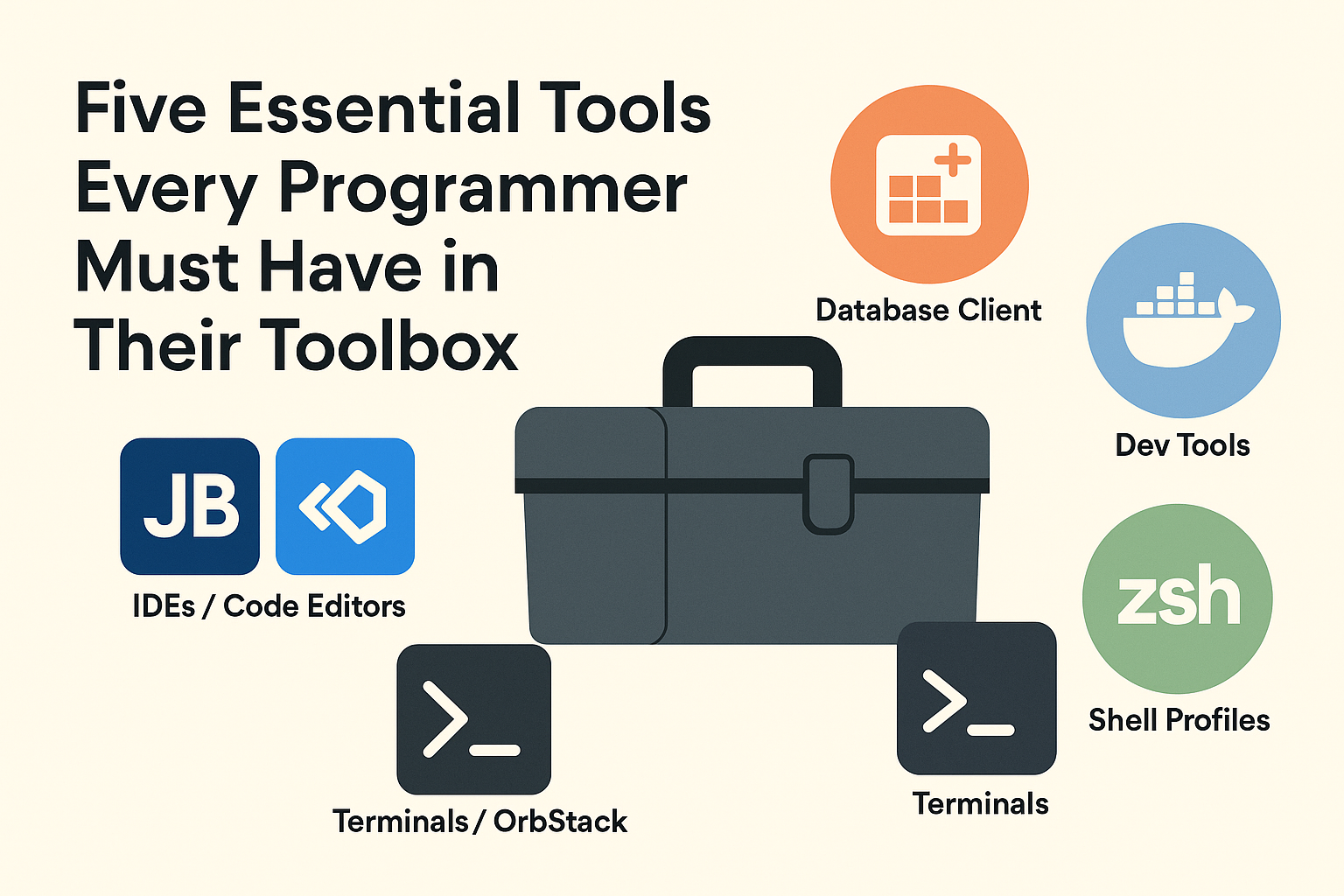
If there’s one thing I’ve learned as a developer, it’s this: the right tools make all the difference. From debugging stubborn APIs to spinning up quick test environments, a solid setup saves time (and sanity). Every programmer needs an IDE, a database client, a good terminal, and more—but these are my personal go-to choices.
1. IDEs / Code Editors – JetBrains & VSCode
You’ll definitely need an editor to write code, and these two are my favorites. VSCode is lightweight, flexible, and packed with extensions to cover almost any stack. For more advanced features, JetBrains tools (like PhpStorm or GoLand) take things up a notch with powerful refactoring, deep code analysis, and smart integrations.
2. Database Client – TablePlus
Working with databases directly in the terminal? It works… but a clean UI makes life so much easier. TablePlus is my preferred choice because it supports multiple database types and keeps things fast and intuitive.
3. Dev Tools – Docker / OrbStack
If you’re setting up environments or testing services locally, you’ll need containerization. Docker is the standard for me. On Mac, I like OrbStack—it’s lighter and faster, which means fewer fan noises and less battery drain.
4. Terminals – iTerm / Warp
You can get by with the default terminal, but these elevate the experience. iTerm adds tabs, splits, and customizations I can’t live without. Warp brings modern features like command blocks and AI assistance that feel almost futuristic.
5. Shell Profiles – zsh
A good shell profile is a productivity hack. I use zsh with Oh My Zsh for features like autocompletion, aliases, and plugins. Once you try it, Bash feels ancient.
🔑 Final Thoughts
There’s no one-size-fits-all, but investing in tools that fit your workflow pays off big time. These are the ones I keep in my toolbox—what’s in yours?